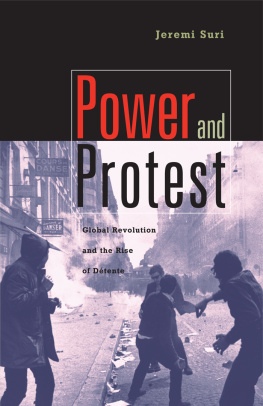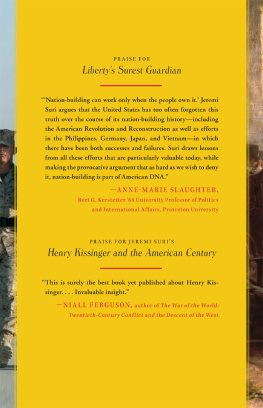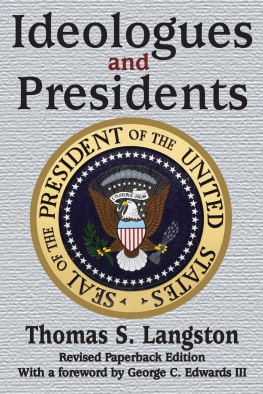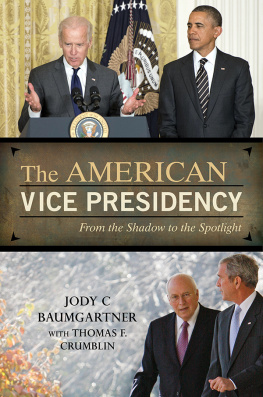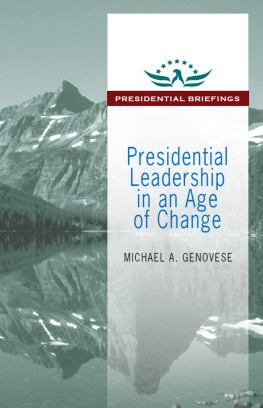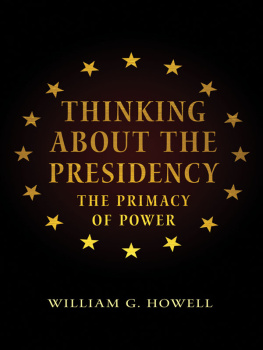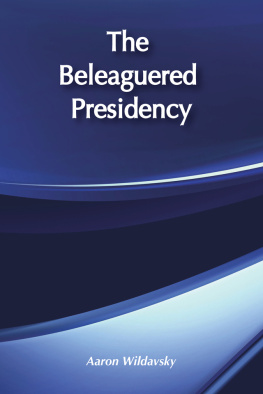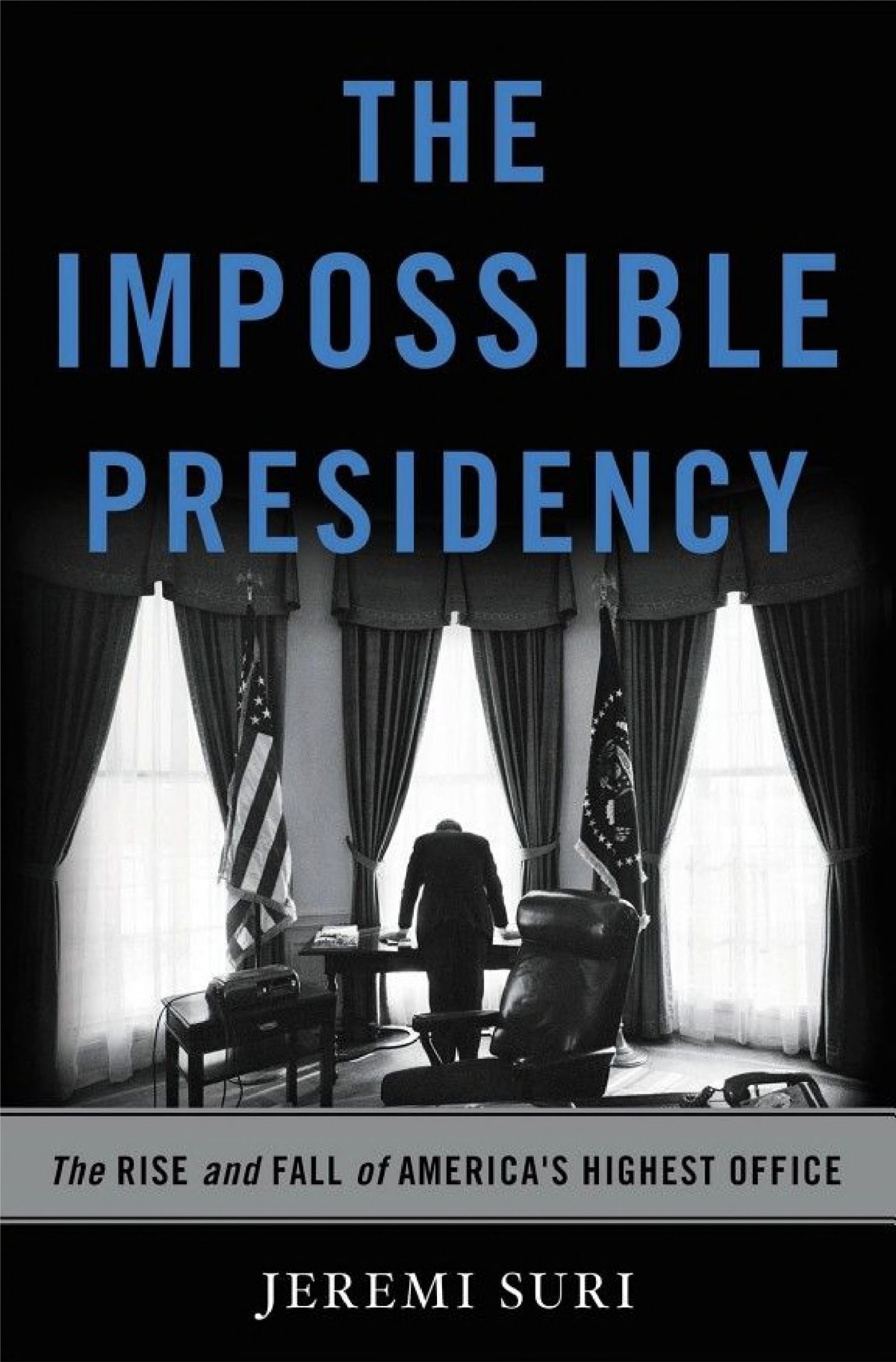Hachette Book Group supports the right to free expression and the value of copyright. The purpose of copyright is to encourage writers and artists to produce the creative works that enrich our culture.
The scanning, uploading, and distribution of this book without permission is a theft of the authors intellectual property. If you would like permission to use material from the book (other than for review purposes), please contact permissions@hbgusa.com. Thank you for your support of the authors rights.
Published by Basic Books, an imprint of Perseus Books, LLC, a subsidiary of Hachette Book Group, Inc.
The Hachette Speakers Bureau provides a wide range of authors for speaking events. To find out more, go to www.hachettespeakersbureau.com or call (866) 376-6591.
The publisher is not responsible for websites (or their content) that are not owned by the publisher.
Library of Congress Cataloging-in-Publication Data has been applied for.
T he presidency is the most powerful office in the world, but it is set up to fail. And the power is the problem. Beginning as a small and uncertain position within a large and sprawling democracy, the presidency has grown over two centuries into a towering central command for global decisions about war, economy, and justice. The president can bomb more places, spend more money, and influence more people than any other figure in history. His reach is almost boundless.
Reach does not promote desired results. Each major president has changed the world, but none has changed it as he liked. Often just the opposite, especially in recent times. Today, power elicits demands, at home and abroad, that exceed capabilities. Power also inspires resistance, from jealous friends as much as determined adversaries. Power pulls the president into mounting commitments, exaggerated promises, and widening distractionsmission creep, in its many infectious forms.
Despite their dominance, modern presidents have rarely achieved what they wanted because they have consistently overcommitted, overpromised, and overreached. They have run in too many directions at once. They have tried to achieve success too fast. They have departed from their priorities. And they have become too preoccupied with managing crises that inevitably appear, rather than leading the country in desired directions.
Extraordinary power has pushed even the most ambitious presidents to become largely reactiveracing to put out the latest fire, rather than focusing on the most important goals. The crises caused by small and distant actors have frequently defined modern presidents. The time and resources spent on crises have diminished resolve and attention to matters with much greater significance for the nation as a whole. Presidents frequently lose control of their agendas because they are too busy deploying their power flagrantly, rather than targeting it selectively.
Unmatched capabilities and ambitions encourage undisciplined decision-making, followed by stubborn efforts to make good on poor choices. These are the sunk costs that hang over the heads of powerful leaders determined to make sure nothing sinks, except their own presidencies. As much as they try, presidents cannot redeem the past nor control the present. Their most effective use of power is investing in a limited set of national economic, social, and military priorities. Priorities matter most for successful leaders, but presidents forget them in the ever-denser fog of White House decision-making.
T HOMAS J EFFERSON ANTICIPATED THESE CIRCUMSTANCES TWO centuries ago. Although he valued virtue and strength in leaders, Jefferson recognized that these qualities were potential sources of despotism as much as democracy. The virtuous and the strong often try to do too much, and they adopt tyrannical practices in pursuit of purposes that at first seem worthy, but often become corrupted. Machiavellis prince, who promotes the public good through ruthless policies, was a warning against centralized power run amok.
Like other founders steeped in the history of empires, Jefferson wanted to insure that the United States remained a republic with restrained, modest, and cautious leaders. He envisioned a president who embodied wisdom above all, a philosopher more than a warrior or a businessman. For Jefferson, the essential qualities of leadership came from the intellect of the man who occupied the office.
The US Constitution divided power to prevent presidential tyranny, but it did not, of course, guarantee the necessary intellect, prudence, or personal restraint of the people in charge. Fragmented authority could be just as misguided as centralized authority, and it could franchise its despotism in multiplying offices and agencies. A powerful democracy ultimately relied upon the wisdom and self-denial of its leaders, not constitutional barriers, according to Jefferson. Democratic leaders had to remain introspective and ascetic as their country grew more dynamic and prosperous.
Writing on the eve of the countrys first burst of expansion, Jefferson warned that the nations leaders may one day shake a rod over the heads of all, which may make the stoutest of them tremble. Restrained use of power and disciplined focus on the national interest were the only antidotes to excess, despotism, and decline. I hope our wisdom will grow with our power, Jefferson wrote, and teach us that the less we use our power the greater it will be.
Jeffersons heirs did not heed his words. Over two centuries the United States strayed from its values more than any elected president could correct, despite repeated public hopes for a savior. Leaders pursued goalsof wealth, influence, and securitythat undermined the democracy they aimed to preserve. By the mid-twentieth century the growth of American power made frequent misuse unavoidable, and effective leadership nearly unattainable.
The widening gap between power and values produced President Donald Trump, elected to promote raw power above all. He is the final fall of the founders presidencythe antithesis of what they expected for the office. This book is not about Trumps election, but one of its aims is to help us understand the deep historical forces that made it possible. Although President Trump was not inevitable, the rise and fall of Americas highest office has a historical logic that explains the current moment, and how we might move forward.
T HE DESCENT J EFFERSON FEARED DID NOT HAPPEN OVERNIGHT. T HE first century-and-a-half of American presidents led a very different nation. They had fewer temptations and clearer priorities. They were pioneering executives who invented the modern presidency to nurture a stronger, wealthier, and more democratic society. Their ambitions were big, but focused on a small number of issues: union, opportunity, growth, and security. They were idealistic in their aspirations, and realistic in their pursuit of compromise and balancerather than total victory and dominance, both of which were inconceivable in their world. They made the presidency more powerful, even as they affirmed its limitations.
George Washington invented the role of democratic executive. Part king, part elected representative, he was neither and both at the same time. He used his very limited presidential powers to lay the foundations for a national economy, territorial defense, and a common American identity among citizens still defined primarily by their states of residence. He was the father figure for a young republic.


